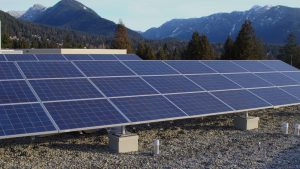

Bill Tieleman has written a commentary for the @GreorgiaStraight on the hydroelectricity supply situation in BC (https://www.straight.com/city-culture/bc-needs-affordable-dependable-energy-choices). He is correct that the current drought situation has resulted in legitimate concerns about how we meet our energy needs. But is the solution to abandon our GHG emission reduction plans which include reducing the use of natural gas in new construction?
In the commentary he mentions “renewable natural gas” several times. He fails to mention that there is not enough renewable gas to supply existing gas consumption, let alone new consumption. That is why it is good policy to exclude natural gas from new construction where it will come primarily from fossil fuels.
The article also fails to mention that one of main reasons we will be running short of electricity is that the LNG industry is going to be using a significant amount of our hydroelectricity. One plant alone will use more than 9,000 Gwh per year, the equivalent of two site C dams (https://thenarwhal.ca/bc-lng-major-projects/). Natural gas fracking will also worsen the drought since it uses a significant amount of water. If we put a pause on LNG development we would have more electricity available for reducing GHG emissions.
Tieleman is right in stating that we need more “affordable” energy. But fossil fuels like natural gas are no longer the most affordable form of energy. Solar and wind now have the lowest cost levelized cost (see: https://www.statista.com/statistics/1115401/average-levelized-cost-energy-by-technology-globally/).
We should be focusing on developing more distribute d renewable energy resources like wind and solar. BC already has over 8,000 solar energy systems connected to the grid through the net-metering program. But there is room for many more. The provincial government and BC Hydro has taken some tentative steps towards increasing these projects. But they could be doing more.
d renewable energy resources like wind and solar. BC already has over 8,000 solar energy systems connected to the grid through the net-metering program. But there is room for many more. The provincial government and BC Hydro has taken some tentative steps towards increasing these projects. But they could be doing more.
The federal clean technology investment tax credit (ITC) means that solar is cheaper than ever for business to install. Business and governments can also use on-site PPAs (power purchase agreements) to install solar energy with no upfront capital costs and can often start saving money from day one.